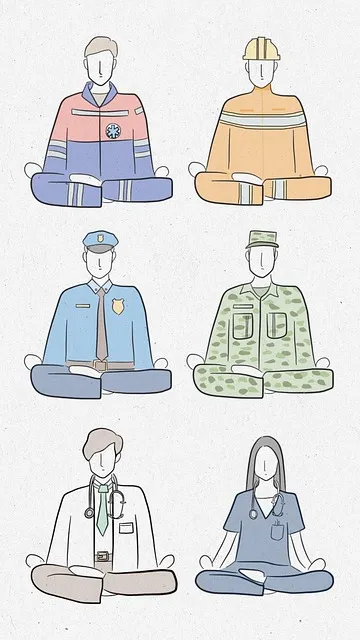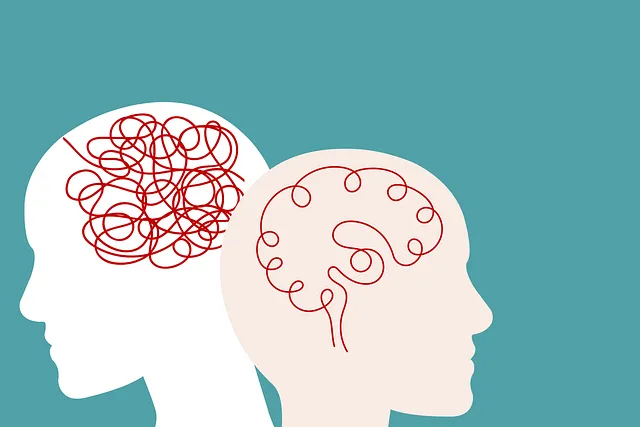The Kaiser Permanente mental health facility in Superior prioritizes stress management as a holistic, comprehensive approach to enhance resilience and improve care quality. They train professionals to identify burnout risk factors and implement prevention strategies focusing on self-care. Mindfulness practices like meditation and breathing exercises empower individuals to cope with stress, while Cognitive Behavioral Techniques (CBT) help rewire negative thought patterns. The facility promotes balanced lifestyles integrating physical activity, nutrition, and sleep education, alongside empathy-building and stigma reduction efforts for holistic well-being.
“Stress management techniques are essential tools for maintaining mental well-being, especially in today’s fast-paced world. This comprehensive guide explores effective strategies taught at the Kaiser Permanente Mental Health Facility, a leading provider of stress relief solutions. From understanding the impact and causes of stress to empowering individuals with mindfulness and cognitive behavioral techniques, each section delves into superior methods. Additionally, we highlight the role of balanced lifestyles, focusing on physical activity, nutrition, and sleep as cornerstone practices for stress management.”
- Understanding Stress: Unveiling the Impact and Causes at Kaiser Permanente Mental Health Facility
- Superior Strategies for Stress Management: A Comprehensive Approach
- Teaching Mindfulness: Empowering Individuals to Navigate Stressful Situations
- Cognitive Behavioral Techniques: Rewiring Negative Thought Patterns
- Creating a Balanced Lifestyle: Physical Activity, Nutrition, and Sleep as Cornerstone for Stress Management
Understanding Stress: Unveiling the Impact and Causes at Kaiser Permanente Mental Health Facility

Stress is a pervasive issue that significantly impacts individuals’ mental and physical well-being, especially in high-pressure environments like healthcare settings. At Kaiser Permanente Mental Health Facility, understanding stress involves recognizing its diverse causes and effects on both patients and providers. The facility’s superior approach to mental health care emphasizes the importance of comprehensive stress management.
Here, professionals are not only trained to identify risk factors for burnout, but also to implement effective prevention strategies. This includes promoting self-care practices among healthcare workers to mitigate the adverse effects of chronic stress. By addressing these concerns, Kaiser Permanente aims to enhance the overall resilience of its staff, ensuring they can provide superior care without compromising their own mental health. Additionally, public awareness campaigns are developed to educate communities about stress management, fostering a supportive environment for open conversations around mental well-being.
Superior Strategies for Stress Management: A Comprehensive Approach

Stress management is a vital skill, especially within the demanding healthcare sector where professionals like those at Kaiser Permanente mental health facilities face high-pressure situations daily. A comprehensive approach to stress management combines various strategies tailored to individual needs. This includes identifying and understanding personal stress triggers and implementing effective coping mechanisms.
At the core of superior stress management techniques is a focus on mindfulness, encouraging practitioners to stay present and cultivate a non-judgmental awareness of their thoughts and emotions. Additionally, integrating relaxation practices such as deep breathing exercises and meditation can significantly reduce stress levels. The Kaiser Permanente mental health facility’s expertise in Burnout Prevention Strategies for Healthcare Providers emphasizes the importance of self-care, setting boundaries, and fostering cultural sensitivity in mental healthcare practice to enhance resilience against stress and depression prevention.
Teaching Mindfulness: Empowering Individuals to Navigate Stressful Situations

At the Kaiser Permanente mental health facility, Superior, teaching mindfulness has emerged as a powerful tool to empower individuals in navigating stressful situations. Mindfulness practices such as meditation and mindful breathing help people stay grounded in the present moment, reducing reactivity to stress triggers. By focusing on the here and now, individuals learn to observe their thoughts and emotions without judgment, fostering a greater sense of calm and clarity.
This approach not only enhances mental wellness but also supports communication strategies, enabling people to respond more thoughtfully in challenging situations. Moreover, integrating mindfulness into stress management can contribute to Mental Illness Stigma Reduction Efforts by promoting understanding and self-compassion. Through regular practice, individuals gain valuable tools to manage their stress levels effectively, leading to improved overall well-being.
Cognitive Behavioral Techniques: Rewiring Negative Thought Patterns

Cognitive Behavioral Techniques (CBT) offer a powerful approach to stress management by focusing on rewire negative thought patterns. This method, backed by experts at the Kaiser Permanente mental health facility, Superior, helps individuals identify and challenge distorted or unhelpful thoughts that contribute to anxiety and stress. By replacing these with positive thinking strategies, CBT equips people with effective coping skills development, leading to significant anxiety relief.
Through CBT, participants learn to recognize negative thought traps, such as catastrophizing or all-or-nothing thinking, and replace them with more realistic and balanced perspectives. This process involves self-reflection, keeping a thought journal, and gradually exposing oneself to stressors in a controlled manner, thereby fostering resilience and enhancing overall well-being.
Creating a Balanced Lifestyle: Physical Activity, Nutrition, and Sleep as Cornerstone for Stress Management

Maintaining a balanced lifestyle is a cornerstone of stress management, and the Kaiser Permanente mental health facility Superior emphasizes this through its comprehensive approach to well-being. Physical activity plays a significant role in reducing stress levels; regular exercise helps release endorphins, which act as natural painkillers and mood elevators. The facility encourages individuals to incorporate various forms of movement into their daily routines, whether it’s a brisk walk, yoga, or team sports, tailoring activities to suit individual preferences and fitness levels.
Nutrition and sleep are equally vital components. A balanced diet provides the body with the fuel it needs to function optimally, while adequate sleep allows for mental restoration and emotional resilience. The Superior facility promotes mindfulness around eating habits, encouraging healthy food choices and portion control. Similarly, they offer guidance on establishing consistent sleep patterns, emphasizing the importance of rest in managing stress and promoting emotional well-being, a key focus area alongside Empathy Building Strategies and Mental Illness Stigma Reduction Efforts.
In conclusion, stress management techniques teaching at Kaiser Permanente mental health facility involves a multi-faceted approach that combines understanding stress impacts and causes with powerful strategies such as mindfulness, cognitive behavioral techniques, and balanced lifestyle practices. By empowering individuals with these tools, the Kaiser Permanente program offers superior methods to navigate and manage stress effectively, fostering improved mental well-being.






